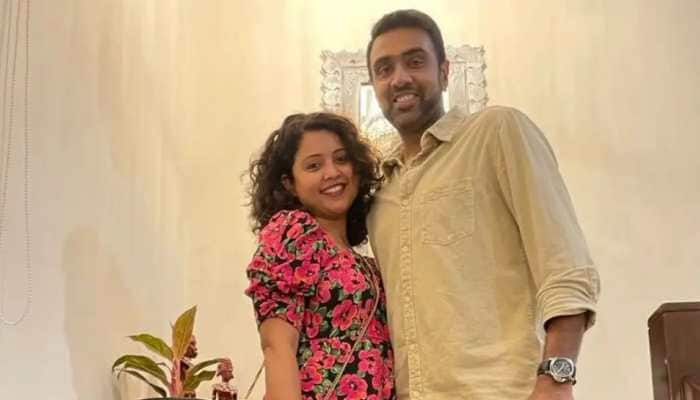War within CBI should not have been allowed to spill in public so soon
Internal processes should have been allowed to flow before high-level action was taken.
Trending Photos
)
Recent reports of washing dirty linen in public in the affairs relating to CBI are appalling. Surely, there were other ways of dealing with this. Indeed, the numero uno of the CBI should have handled the issue with more mature leadership. It is nobody's case that whatever esteem this premier investigation agency had in the public domain is further reduced.
Mandate of CBI
Why do I say so? It is not denied that CBI is an agency that is vested with matters falling under the Prevention of Corruption Act. Inducements investigation is one of the primary mandates of the organisation, besides those mandates which are assigned to it under the aegis of DSPE Act.
It is generally found that state governments are reluctant to assign cases to the CBI unless it is on the intervention of the judiciary or if the political dispensation in both the Union and assigning states are the same. To that extent, the credibility of CBI as a political tool already gets reflected. Hence, it is mostly the Prevention of Corruption Act cases against public servants that CBI is mandated.
With a trend of the people's mandate being assigned to different parties in Centre and state, CBI will more or less grow into an investigation agency dedicated to PCA cases. In a sense, it will become an investigative arm of the Central Vigilance Commission. In this context, this public spat between the two top investigators will further render the credibility of the organisation into its nadir.
First recourse to departmental remedies
Do we want this? Could this have been avoided? At least I for one do believe that the matter should not have been allowed to precipitate to this level. Notwithstanding the fact this is an investigating agency for PCA cases, before taking any precipitative action the CBI Director on receipt of any input of corruption, departmental proceedings should have been initiated against the officer. That would have helped the CBI to mine more authentic information on any misconduct of the charged officer. There is little evidence of this having been taken place.
On the contrary, the Director had indeed passed an order that in his absence his Number 2 will not attend an important meeting with CVC on his behalf. It was at the behest of CVC that this meeting was attended by the Number 2. This now leads to speculation that the actions of the Number 1 was not without possibilities.
Interventions of the minister in charge
On the part of Number Two also, a lot more counselling was required before bringing the matter before the Cabinet Secretary or PMO. Let us not get into the merits of the case. Indeed, before bringing the facts and evidences in his possession in a formal submission to the Cabinet Secretary, this officer could have met the Honourable Minister of State in PMO who is a very affable person, Dr Jitender Singh, and explained the full case against the Number One. It is not a far-fetched thing for such a senior officer of the agency.
Dr Singh is also generally liberal in granting appointments to his officers if my personal experience is to be relied. In the said meeting he could have impressed upon Dr Singh to carry out an internal neutral inquiry. Hence, an opportunity was lost. The MoS could have been co-opted by the parties as a mediator.
Dr Swamy's tweet
Having said that, I would like to bring out here about Dr Swamy's tweet today about D-Gang having infiltrated the agency. It is indeed a fact. May I take you to Chapter 11 of my book, where I have explained the D-Gang's long arm with a case study.
The present Minister for Urban Development, Mr HS Puri, was to take charge as Permanent Representative of India to UN in 2009. On a request from the USA for domestic designation of Dawood Ibrahim as a terrorist under relevant UNSCR resolutions, he desired to have clear evidences from Union Home Minister. Our Intelligence agencies were giving inputs, but the clinching evidence, which was available with CBI, was stonewalled by the agency. Hence, it is not today that subversive forces have access to CBI top brass.
Visitors to high offices
Now, I recall another incident relating CBI top brass. Ranjit Sinha, former CBI Director, used to meet several undesirable persons, including Moin Qureshi and his associates. This was all over the media in 2014. It was substantiated through the entries into his visitor register at his residence.
Talking of visitors registers in the residences of persons holding high offices including Constitutional functionaries, I believe that these are to be preserved for several years after they demit office.
Surely, whether it is a Police Commissioner or CBI Director or Special Director, they have a retinue of personnel who are at what is known as the Residential Office. These persons are drawn from the staff strength of the agency itself. Hence, one person can always be assigned to record the visitors to the residences of persons holding high offices.
As it is, the Indian capital is full of brokers for different types of services, including getting you appointed to high offices, promising you the sun and the moon, getting policy changes by the government (I don't know whether they can actually do it) or getting favourable judicial pronouncements. The government should necessarily keep track of the movements of these middlemen.
Previous instances
Why I am flagging this is more salient. There were visitors to the residence-cum-office of a high functionary during 2007-2014. These can corroborated if the visitor registers are available. These visitors were from SDPI/ PFI. This Constitutional functionary, after demitting office, had on few occasions expressed support to these outfits. He had also partaken in a meeting held in the house of a prominent Congress leader hosting a former Pakistani Foreign Minister in the recent past.
Therefore, without fear or favour, the visitors registers in residence of people holding high offices in the country should necessarily be maintained, preferably in an electronic format.
(Disclaimer: The opinions expressed above are the personal views of the author and do not reflect the views of ZMCL.)
Stay informed on all the latest news, real-time breaking news updates, and follow all the important headlines in india news and world News on Zee News.
Live Tv







)
)
)
)
)
)
)
)
)
)
